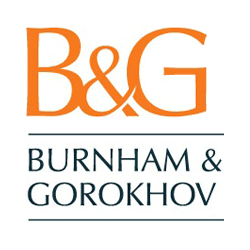Attorneys in Washington, DC, are held to a high standard of ethical and professional conduct. A single infraction, whether intentional or inadvertent, can jeopardize an attorney’s professional license, career, and reputation. Attorney defense before the DC Board of Professional Responsibility is critical for those facing allegations of misconduct. Understanding the types of infractions that may lead to disciplinary action and the process involved can help attorneys navigate these challenges effectively
Types of Professional Misconduct That May Jeopardize a Professional License
Attorneys may face disciplinary action for various infractions, some of which include:
- Ethical Violations – Misconduct such as conflicts of interest, client misrepresentation, or breaching client confidentiality can result in significant repercussions.
- Misuse of Client Funds – Mishandling trust accounts or improper accounting of client funds is a serious offense and a frequent cause of disciplinary action.
- Criminal Charges – Any criminal activity, especially those involving dishonesty or breach of trust, can severely impact an attorney’s standing with the bar.
- Failure to Meet Continuing Legal Education (CLE) Requirements – Attorneys are required to maintain their knowledge by completing annual CLEs. Failure to comply can result in license suspension or disciplinary action.
- Substance Abuse or Impairment – Issues with substance abuse or addiction that affect an attorney’s ability to represent clients can lead to intervention by disciplinary authorities.
The Disciplinary Process for Attorneys
The disciplinary process for attorneys in Washington, DC, begins with a complaint filed by a client, colleague, or third party with the DC Bar’s Office of Disciplinary Counsel. This office investigates allegations of attorney misconduct and determines if further action is necessary.
- Notification and Investigation – Upon receiving a complaint, the attorney will be notified by the Office of Disciplinary Counsel. The attorney is typically asked to respond to the allegations and provide relevant documentation. An investigation will follow, during which witnesses may be interviewed, and records will be reviewed.
- Formal Charges and Hearings – If the Disciplinary Counsel finds enough evidence to support the complaint, formal charges will be filed. The attorney will be required to attend a hearing, where evidence will be presented, and the attorney will have the opportunity to defend themselves.
- Possible Outcomes – Outcomes vary depending on the severity of the offense. Disciplinary actions may include private or public reprimands, probation, suspension, or disbarment. Attorneys may also face criminal charges in certain cases, such as theft of client funds or fraud.
Importance of Legal Representation in Disciplinary Matters
Facing a disciplinary investigation is a serious matter that requires experienced legal counsel. Attorneys should not attempt to navigate the process alone, as the consequences of a negative outcome can be career-ending. A lawyer who specializes in professional license defense can offer invaluable advice, ensure the attorney’s rights are protected, and present a strong defense during the disciplinary process.
If you are an attorney in Washington, DC, facing a professional license investigation, it is crucial to take immediate action. We’re experienced in professional license defense for attorneys in Washington DC. Contact Burnham & Gorokhov today to discuss your case and get the experienced legal representation you need to protect your career.

